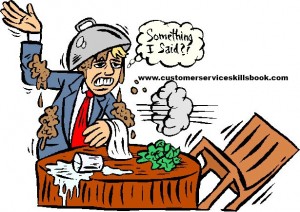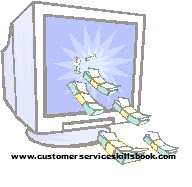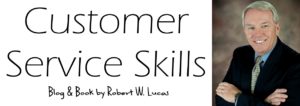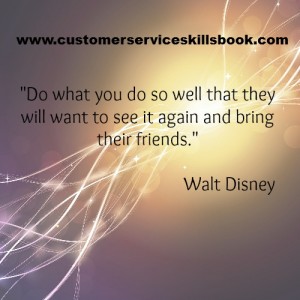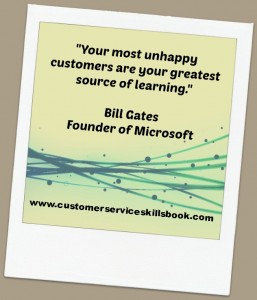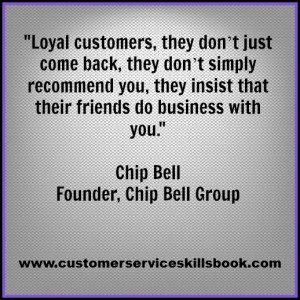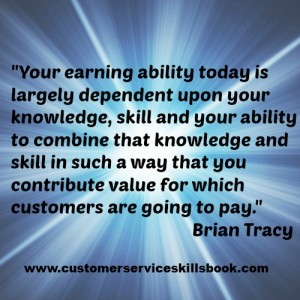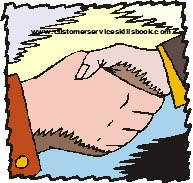What is a Service Breakdown?
Service breakdowns occur daily in all types of organizations. They happen whenever the product or service delivered fails to meet customer needs, wants and expectations.
In some cases the product or service delivered may function exactly as it was designed or promised, still, if the customer perceived that it should work another way, a breakdown can occur. Additionally, when a product or service fails to meet what the customer wants or needs or does not live up to advertised promises or standards, dissatisfaction and frustration can result.
In addition, customer expectations can affect how service is delivered and perceived. Today’s customers are more discerning and better educated, have access to more up-to-date and accurate information. They are often more demanding than in the past. Their expectations about your products and services and the way that you will provide them may create a situation where little you do or say can meet their perceptions. In such cases, remain professional, positive and offer alternatives or concessions, if appropriate, in order to maintain the relationship and provide what the customer needs or wants.
Failure to fulfill some or all of your customer expectations can lead to dissatisfaction and in some cases confrontation and/or loss of business. Keep in mind that they also have many more options offered by your competitors.
For ideas on how to avoid and recover from customer service breakdowns and salvage relationships when customer service does not go as planned, get a copy of Customer Service Skills for Success by Robert W. Lucas.
About Robert C. Lucas
Bob Lucas has been a trainer, presenter, customer service expert, and adult educator for over four decades. He has written hundreds of articles on training, writing, self-publishing, and workplace learning skills and issues. He is also an award-winning author who has written thirty-seven books on topics such as, writing, relationships, customer service, brain-based learning, and creative training strategies, interpersonal communication, diversity, and supervisory skills. Additionally, he has contributed articles, chapters, and activities to eighteen compilation books. Bob retired from the U.S. Marine Corps in 1991 after twenty-two years of active and reserve service.
Make Money Writing Books: Proven Profit Making Strategies for Authors by Robert W. Lucas at Amazon.com.
The key to successfully making money as an author and/or self-publisher is to brand yourself and your company and to make yourself and your book(s) a household name. Part of this is face-to-face interaction with people at trade shows, library events, book readings, book store signings, blogging or guest blogging on a topic related to their book(s). Another strategy involves writing articles and other materials that show up online and are found when people search for a given topic related to a topic about which the author has written.
If you need help building an author platform, branding yourself and your book(s) or generating recognition for what you do, Make Money Writing Books will help. Bob’s popular book addresses a multitude of ideas and strategies that you can use to help sell more books and create residual and passive income streams. The tips outlined in the book are focused to help authors but apply to virtually any professional trying to increase personal and product recognition and visibility.

